A new study published by American University demonstrates how Pokémon GO and other augmented reality games can help city governments bring communities closer together.
An ongoing partnership between Pokémon GO developer Niantic and the community investment program of the John S. and James L. Knight Foundation has facilitated eight events for city governments to gain insight into how technology can contribute to community engagement.
Niantic and the Knight Foundation jointly funded the study and the programs. Four of the studied cities — Akron, Ohio; Charlotte, North Carolina; Philadelphia, Pennsylvania (where two separate events were held); and San Jose, California — regularly receive support from the foundation. The study also sponsored initiatives in Boston, Massachusetts and Chester, UK while collecting data from independent programs conducted in New Bedford, Massachusetts and Atlanta, Georgia.

The study, titled "Cities Remix a Playful Platform: Prominent Experiments to Embed Pokémon GO, from Open Streets to Neighborhood Libraries and Local Data," details the results from the programs and prescribes how other municipal governments to can apply the approach to their own initiatives.
The authors examined three models for applying augmented reality gaming to municipal initiatives. The first model, applied by the four Knight-invested cities, employed Pokémon GO to attract citizens to open street festivals. The second model leveraged the game for persistent neighborhood tours between five libraries in Philadelphia. The third model empowered citizens in Boston to contribute to the underlying location data leveraged in the game.
"Cities are going digital. This experiment explores how technology can improve efforts to get people out and into the community," said Sam Gill, Knight Foundation vice president for communities and impact. "We hope leaders use these lessons to take advantage of the inevitable growth in technology to foster more engaged communities."
Dr. Benjamin Stokes, a communications professor at American University and lead author of the study, as well as co-authors Samantha Dols and Aubrey Hill, research civic engagement at the American University Game Lab. They've concluded that, for the gaming-meets-community-engagement approach to be effective, location-based games should be tailored to the local community, with activities hosted at accessible public spaces, with the local culture integrated into the experience.
"Our findings can help city leaders to identify new tactics to strengthen their communities," said Stokes, in a blog post. "For example, we tracked how Philadelphia shifted from bringing in tourists to connecting more residents across neighborhood divides. We found that the impact in cities changes, depending on how city leaders embed the game."
The study also found that location-based games were more impactful for community initiatives when networks of players, rather than individuals, were invited.
"Many of the players we interviewed were surprisingly networked," said Hill. "They arrived in groups, and coordinated in live chat, social media, and in person. This report points to how play can build local ties, and reveals some of the networks emerging through play in our neighborhoods."
The results of the initiatives varied based on the goals of the municipal entities. For example, San Jose attracted 35,000 Pokémon GO players to its open street festival, where the goal was to reimagine local streets without cars. The festival also generated more than $450,000 for the local economy.
"By contrast, the Philadelphia event deliberately sought fewer people, [in order] to shift the focus within the city," said Stokes in an email to Next Reality. "They successfully involved more than 10,000 players according to Niantic data. If you're curious, that means the boost at Pokestops along the event route in Philadelphia was half that of San Jose, which matched their goals. In many ways, the more important results-based outcomes in Philadelphia were qualitative and emphasized following a route (not just going to the hottest game locations), and interacting with local history."
In addition to financial considerations, Niantic provided technical support for the initiatives. For example, with the Boston initiative, Niantic actually changed Pokestops within the game based on requests from program participants, who produced more than 50 videos detailing their recommendations for Pokestops and repositioned 18 locations in the game.
"For Boston, the desired outcome was to empower young people to change the game content with DEEP alignment to local struggles in history," said Stokes. "Directly modifying the game in this way is very rare, and the scale is deliberately small to focus on the quality of the process and content."
While much of the attention towards augmented reality emphasizes the technology, the study reveals the strong humanist aspects of augmented reality. While smartphones are often criticized for isolating people from each other and deteriorating social interactions, the initiatives in this study show how location-based augmented reality gaming can reverse the trend and foster inclusiveness.
"Niantic was founded on the core tenant of getting people off the couch to explore their local community," said John Hanke, founder and CEO of Niantic. "Our goal is to provide amazing interactive experiences that not only deliver fun gameplay, but help people learn about the history, culture and society of the places around them. By turning city spaces into game boards, we're hoping to bring communities together in entirely new ways."
It's a goal that need not be exclusive to Niantic. Google Maps and Mapbox are both giving developers keys to building similar experiences. And platforms from Amazon, Metaverse, Zappar, and others are empowering non-developers to build their own augmented reality experiences.
We've seen how augmented reality can be used to innovate in business, but the use cases highlighted in this study show how the technology can be leveraged to change how communities operate as well.
"Cities are going digital. This experiment explores how technology can improve efforts to get people out and into the community," said Gill. "We hope leaders use these lessons to take advantage of the inevitable growth in technology to foster more engaged communities."
Just updated your iPhone? You'll find new features for Podcasts, News, Books, and TV, as well as important security improvements and fresh wallpapers. Find out what's new and changed on your iPhone with the iOS 17.5 update.
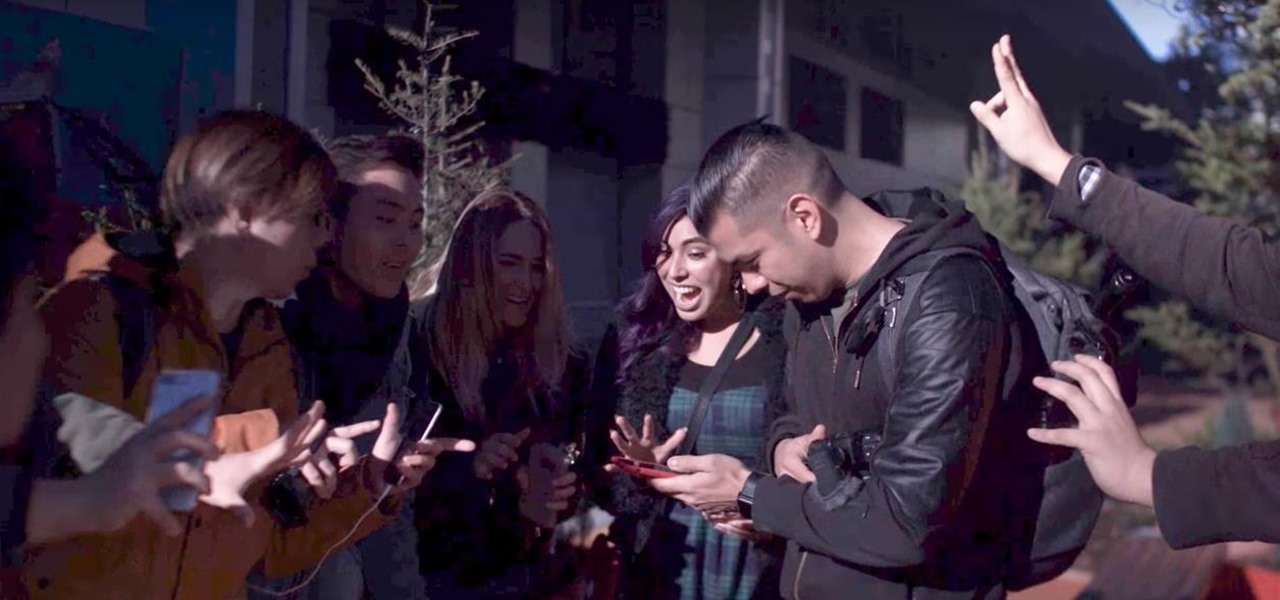



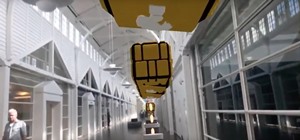










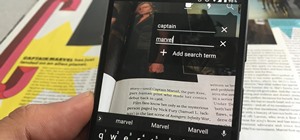


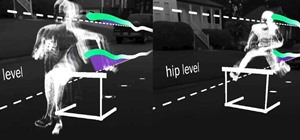

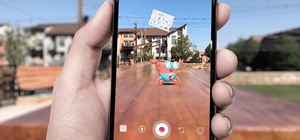




Be the First to Comment
Share Your Thoughts